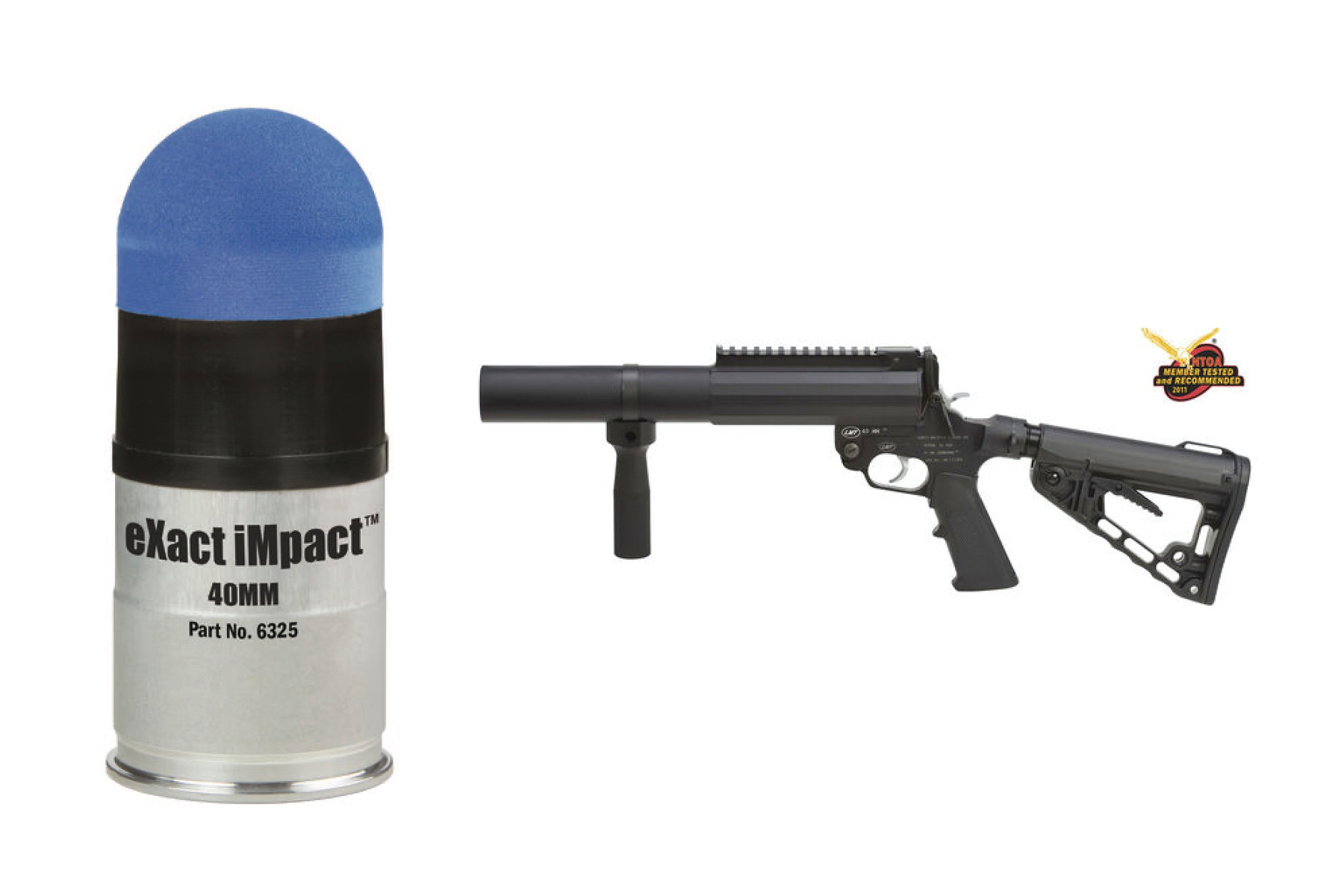Rubber Bullets For Self Defense: A Comprehensive Guide
Self-defense is a crucial aspect of personal safety, and rubber bullets have become a popular option for those seeking non-lethal methods to protect themselves. However, it's important to understand the capabilities, legality, and ethical considerations surrounding rubber bullets for self-defense. In this article, we will explore the effectiveness, risks, and regulations related to rubber bullets, ensuring you make an informed decision.
Rubber bullets, also known as rubber munitions, were initially developed as a less-lethal alternative to traditional firearms. While they offer a way to deter threats without causing fatal injuries, there are important factors to consider before incorporating them into your self-defense strategy.
This guide will provide in-depth information about rubber bullets, including their history, legal status, safety precautions, and alternative options. By the end of this article, you'll have a clear understanding of whether rubber bullets are the right choice for your self-defense needs.
Read also:Kim Junki Net Worth
Table of Contents
- The History of Rubber Bullets
- How Rubber Bullets Work
- Legality of Rubber Bullets for Self Defense
- Effectiveness of Rubber Bullets
- Risks and Safety Concerns
- Alternative Self-Defense Options
- Training and Proper Use
- Statistics and Real-Life Applications
- Frequently Asked Questions
- Conclusion
The History of Rubber Bullets
Rubber bullets were first introduced in the late 1960s during the conflict in Northern Ireland. They were designed as a non-lethal tool for crowd control by law enforcement agencies. Over the years, their use has expanded to include personal self-defense applications. Rubber bullets are typically made from materials such as rubber or plastic and are intended to incapacitate rather than kill.
However, the effectiveness and safety of rubber bullets have been debated over the decades. While they offer a less-lethal alternative, there are documented cases of severe injuries and fatalities when used improperly.
Key points:
- Rubber bullets were first used in the late 1960s for crowd control.
- They are designed to incapacitate rather than kill.
- Improper use can lead to serious injuries or fatalities.
How Rubber Bullets Work
Rubber bullets function similarly to traditional ammunition but are designed to deliver a blunt force impact without penetrating the skin. They are fired from specialized firearms or modified weapons and are typically effective at short ranges. The primary purpose is to cause pain and discomfort, deterring threats without causing permanent harm.
Types of Rubber Bullets
There are several types of rubber bullets available, each with its own characteristics:
- Rubber-coated steel bullets: These are designed to combine the weight of steel with the flexibility of rubber.
- Pure rubber bullets: Made entirely from rubber, these are often used in training exercises.
- Plastic bullets: A variation of rubber bullets, often used for crowd control.
Understanding the differences between these types is essential for selecting the right option for self-defense.
Read also:Kylie Jenner Siblings A Closer Look At The Kardashianjenner Clan
Legality of Rubber Bullets for Self Defense
The legality of rubber bullets varies significantly depending on your location. In some countries, they are strictly regulated or outright banned due to concerns about misuse and potential harm. It is crucial to research and understand the laws governing rubber bullets in your area before purchasing or using them.
Key factors to consider:
- Check local regulations regarding the ownership and use of rubber bullets.
- Be aware of any restrictions on the type of weapon used to fire rubber bullets.
- Understand the legal consequences of using rubber bullets in self-defense situations.
For example, in the United States, the legality of rubber bullets for self-defense depends on state and local laws. Some states allow their use with specific restrictions, while others prohibit them entirely.
Effectiveness of Rubber Bullets
When used correctly, rubber bullets can be an effective tool for self-defense. They are capable of stopping or deterring threats without causing permanent damage. However, their effectiveness depends on several factors, including the distance from the target, the type of rubber bullet used, and the skill level of the user.
Factors Affecting Effectiveness
Here are some key factors that influence the effectiveness of rubber bullets:
- Distance: Rubber bullets are most effective at short ranges, typically within 10-20 meters.
- Target Area: Firing at non-vital areas such as the legs or arms reduces the risk of severe injury.
- Weapon Calibration: Proper calibration of the firing weapon ensures accurate delivery and minimizes risks.
It's important to note that rubber bullets are not foolproof and may not always stop an attacker. Therefore, they should be used as part of a comprehensive self-defense strategy.
Risks and Safety Concerns
While rubber bullets are designed to be non-lethal, they are not without risks. Improper use can lead to serious injuries, including broken bones, organ damage, and even fatalities. It is essential to understand the potential dangers and take appropriate safety precautions.
Common Risks
- Firing at close range increases the likelihood of severe injuries.
- Targeting sensitive areas such as the head or chest can result in life-threatening injuries.
- Using rubber bullets in densely populated areas poses risks to innocent bystanders.
Training and education are critical in minimizing these risks. Always follow safety guidelines and seek professional instruction before using rubber bullets for self-defense.
Alternative Self-Defense Options
If you're considering rubber bullets for self-defense, it's worth exploring alternative options that may better suit your needs. Some popular alternatives include:
- Pepper Spray: A non-lethal option that temporarily incapacitates attackers by causing intense irritation.
- Tasers: Deliver an electric shock to temporarily disable threats without causing permanent harm.
- Self-Defense Classes: Learning martial arts or self-defense techniques can empower you to handle threats effectively without relying on weapons.
Evaluating these alternatives can help you make an informed decision about the best self-defense method for your situation.
Training and Proper Use
Proper training is essential for anyone considering rubber bullets for self-defense. Understanding how to use them safely and effectively can significantly reduce the risk of accidents and injuries. Look for certified training programs that cover:
- Safe handling and storage of rubber bullets.
- Correct firing techniques and target selection.
- Legal considerations and self-defense scenarios.
Investing in training not only enhances your safety but also increases the effectiveness of rubber bullets as a self-defense tool.
Statistics and Real-Life Applications
Data and real-life examples provide valuable insights into the use of rubber bullets for self-defense. According to a report by the International Committee of the Red Cross (ICRC), rubber bullets have been involved in numerous incidents resulting in injuries and fatalities worldwide. These cases highlight the importance of responsible use and proper training.
Key statistics:
- Between 2009 and 2019, there were over 2,000 documented cases of injuries caused by rubber bullets.
- Approximately 5% of these cases resulted in fatalities, primarily due to improper use or targeting sensitive areas.
These statistics underscore the need for caution and education when using rubber bullets for self-defense.
Frequently Asked Questions
Here are some common questions about rubber bullets for self-defense:
Are rubber bullets legal for self-defense?
The legality of rubber bullets varies depending on your location. Always check local laws and regulations before purchasing or using them.
Can rubber bullets cause serious injuries?
Yes, rubber bullets can cause serious injuries, especially when used improperly or at close range. It's crucial to follow safety guidelines and seek professional training.
What are some alternatives to rubber bullets?
Pepper spray, tasers, and self-defense classes are effective alternatives to rubber bullets for personal protection.
Conclusion
Rubber bullets for self-defense offer a non-lethal option for deterring threats, but their use comes with important considerations. Understanding their history, effectiveness, risks, and legal status is essential for making an informed decision. Always prioritize safety, training, and responsible use when incorporating rubber bullets into your self-defense strategy.
We encourage you to share your thoughts and experiences in the comments below. If you found this article helpful, please consider sharing it with others who may benefit from the information. Additionally, explore our other articles on personal safety and self-defense for more valuable insights.


